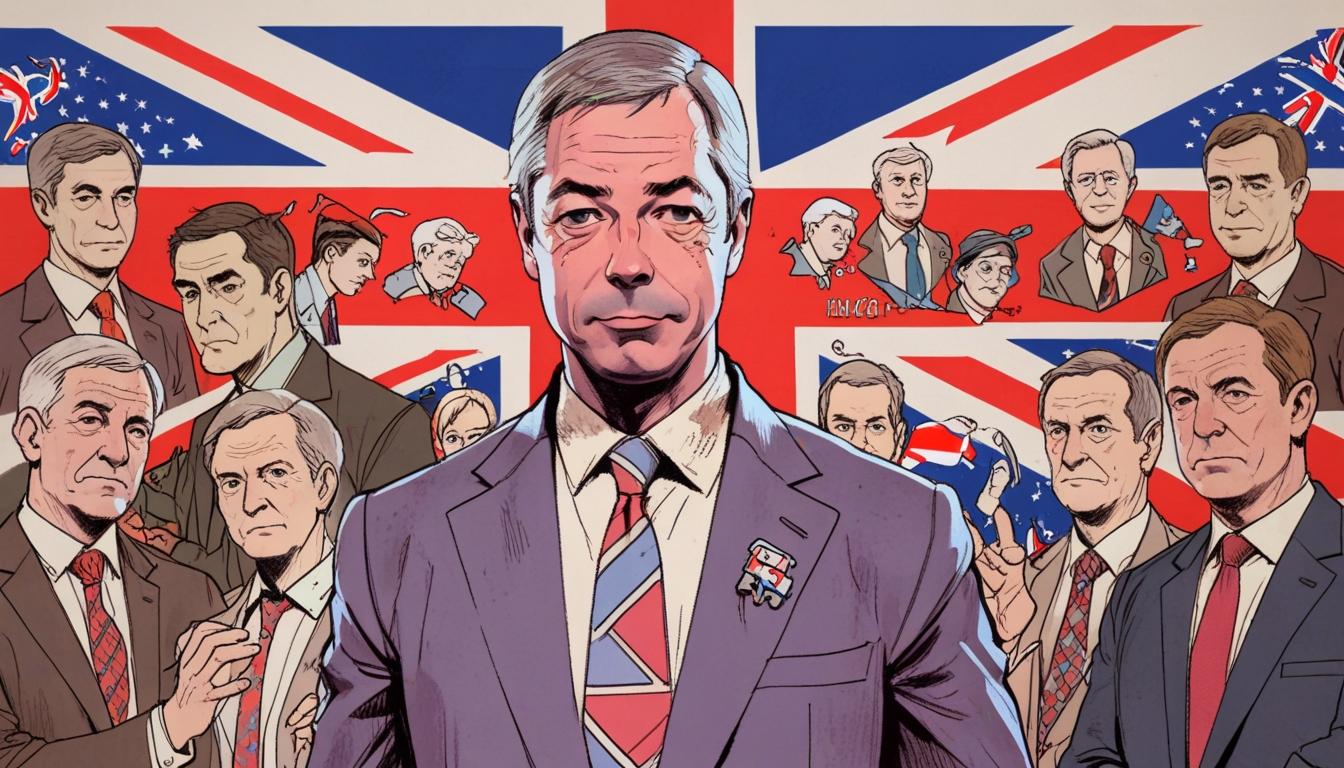As political tension in the UK reaches a boiling point, the rise of Nigel Farage and his party represents a significant threat to the traditional political establishment. With the Conservatives scrambling to find footing following recent electoral setbacks, they have described Farage's proposals as reckless drivel that could lead the nation down a path of financial disaster. Shadow Chancellor Mel Stride's claims that Farage’s dramatic manifesto, featuring £140 billion in giveaways, is not just unrealistic but dangerous reflect a palpable fear of the growing momentum behind his party, now polling at a staggering 32 per cent—far ahead of Labour at 22 per cent and the Conservatives languishing at 19 per cent.
The results of the recent local elections highlight a definitive shift in voter sentiment. Amidst a backdrop of declining support for the established parties, Farage's influence has grown substantially, as evidenced by the hundreds of councillors gained and mayoral victories in Greater Lincolnshire and Hull and East Yorkshire. The capture of constituencies previously viewed as Labour strongholds, such as Runcorn & Helsby, signals a broadening discontent with the status quo, which Farage capitalised on effectively, mirroring rising populist sentiments seen across Europe.
In outlining his platform, Farage's commitment to bold tax reforms has drawn significant scrutiny. A proposal to raise the minimum income tax threshold to £20,000, eliminate inheritance tax for estates under £2 million, and scrap stamp duty on properties valued below £750,000 raises critical questions about fiscal management. Stride has been quick to respond, warning that such sweeping tax cuts could send national debt soaring, burdening future generations with financial instability.
To counter Farage's surging popularity, the Conservative party has opted for a strategy steeped in gradualism, promoting modest tax reductions as a safer alternative to the radical changes advocated by Farage. Stride's stark warning that these proposals could lead to catastrophic funding shortages for the NHS and other vital public services encapsulates the deep concern among Conservative ranks as they navigate the dual challenges of declining popularity and the rising threat of Farage's party.
Amid this turmoil, Labour's Keir Starmer has recalibrated his party’s approach in an effort to address the growing power of Farage. Acknowledging in a recent interview that the next election may become a direct showdown with Farage's party, Starmer's strategy reflects an attempt to reposition Labour among shifting voter allegiances while evoking a sense of urgency against what he labels a "busted flush" Conservative party.
Reform’s manifesto further includes cuts to corporation tax from 25 per cent to 15 per cent, moves that Stride has pointed out could lead to significant deficits in government financing. Farage’s opposition to the current net-zero strategy, along with an insistence on energy sovereignty driven by fossil fuels, underscores a broader backlash against existing environmental policies that many see as detrimental to economic growth.
Nevertheless, the party's platform is rife with contradictions. In recent local campaigns, Reform has unexpectedly shown signs of potentially endorsing state intervention, even advocating for the nationalisation of failing utilities. This puzzling pivot reflects a strategic maneuver to broaden their appeal while straying from the libertarian principles that initially defined their economic philosophy.
As the political landscape continues to shift dramatically, the stakes for both traditional parties and emerging populist forces like Farage's are incredibly high. With growing support hinting at a possible upheaval in British politics, the impending general election could be transformative. Only time will tell if Farage's momentum can evolve into sustained political power or if the traditional parties can reclaim their authority amidst such formidable challenges.
Source: Noah Wire Services
